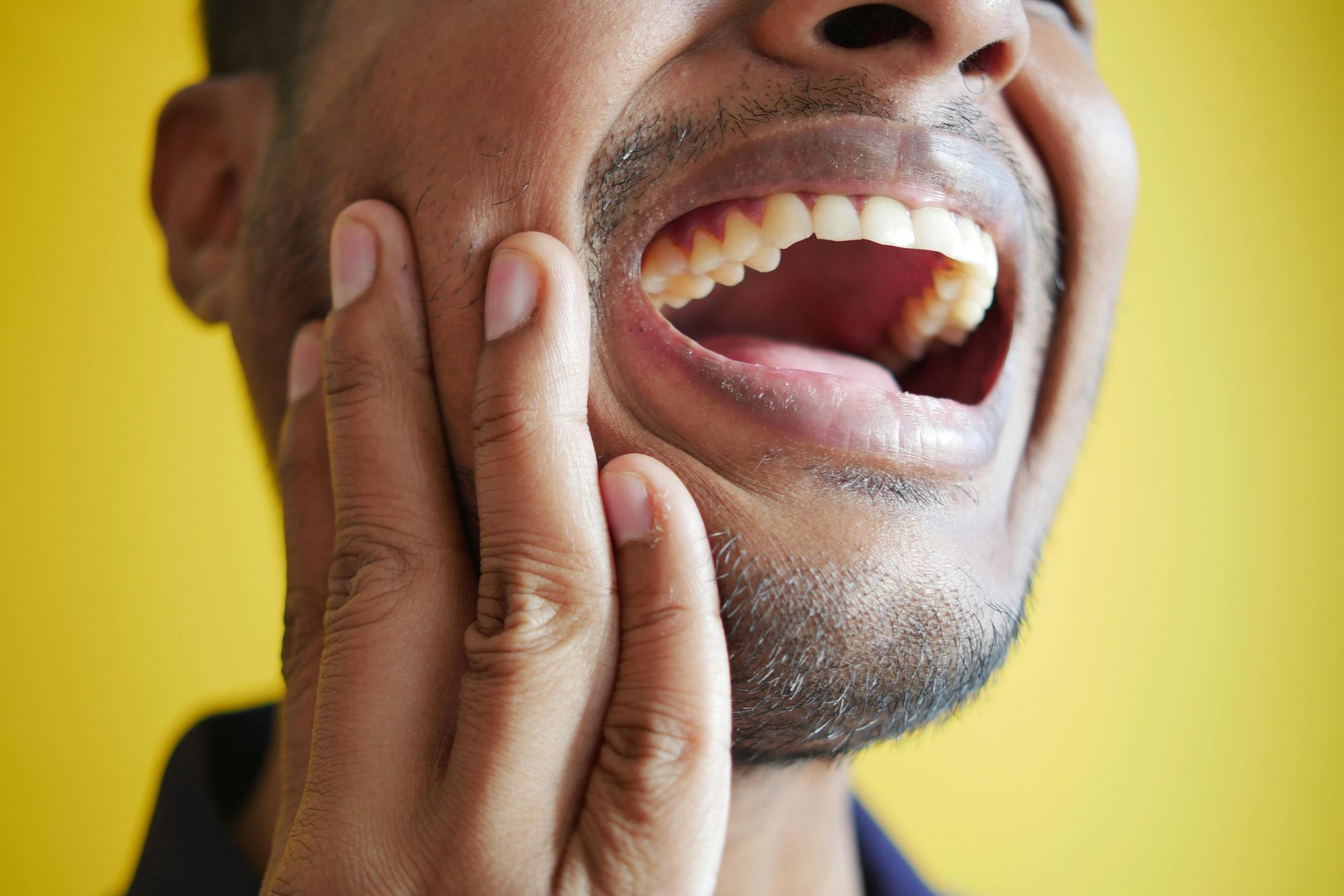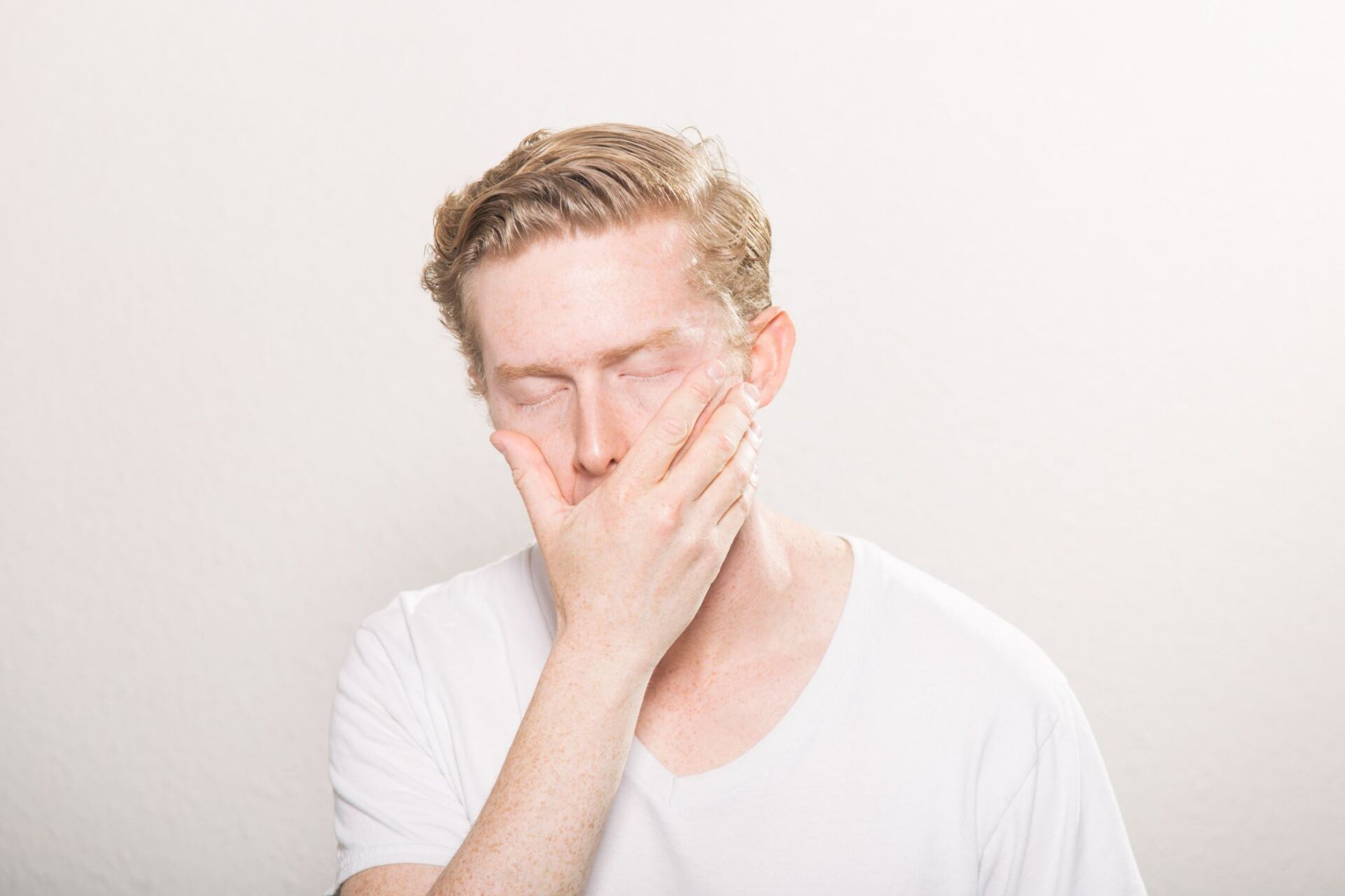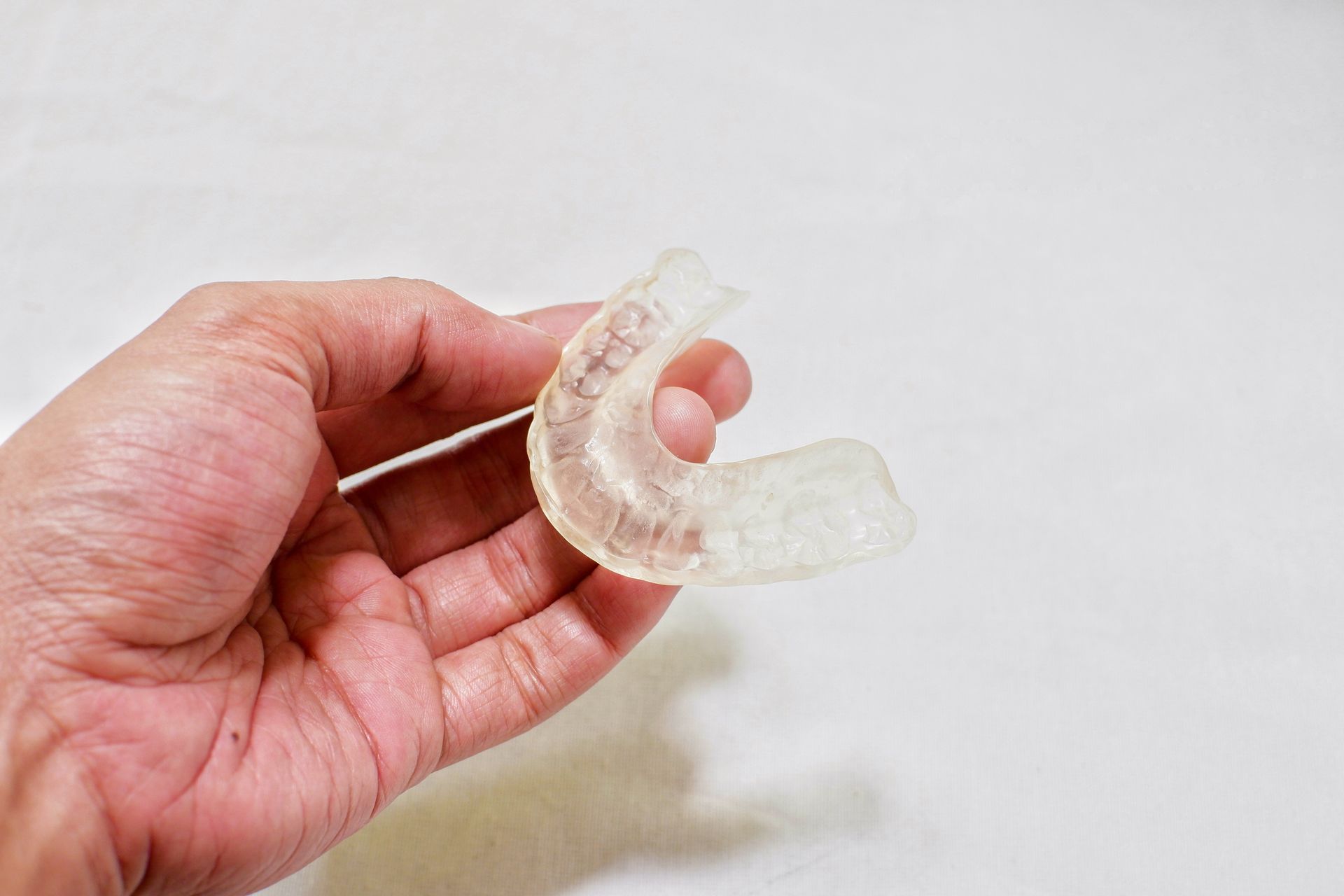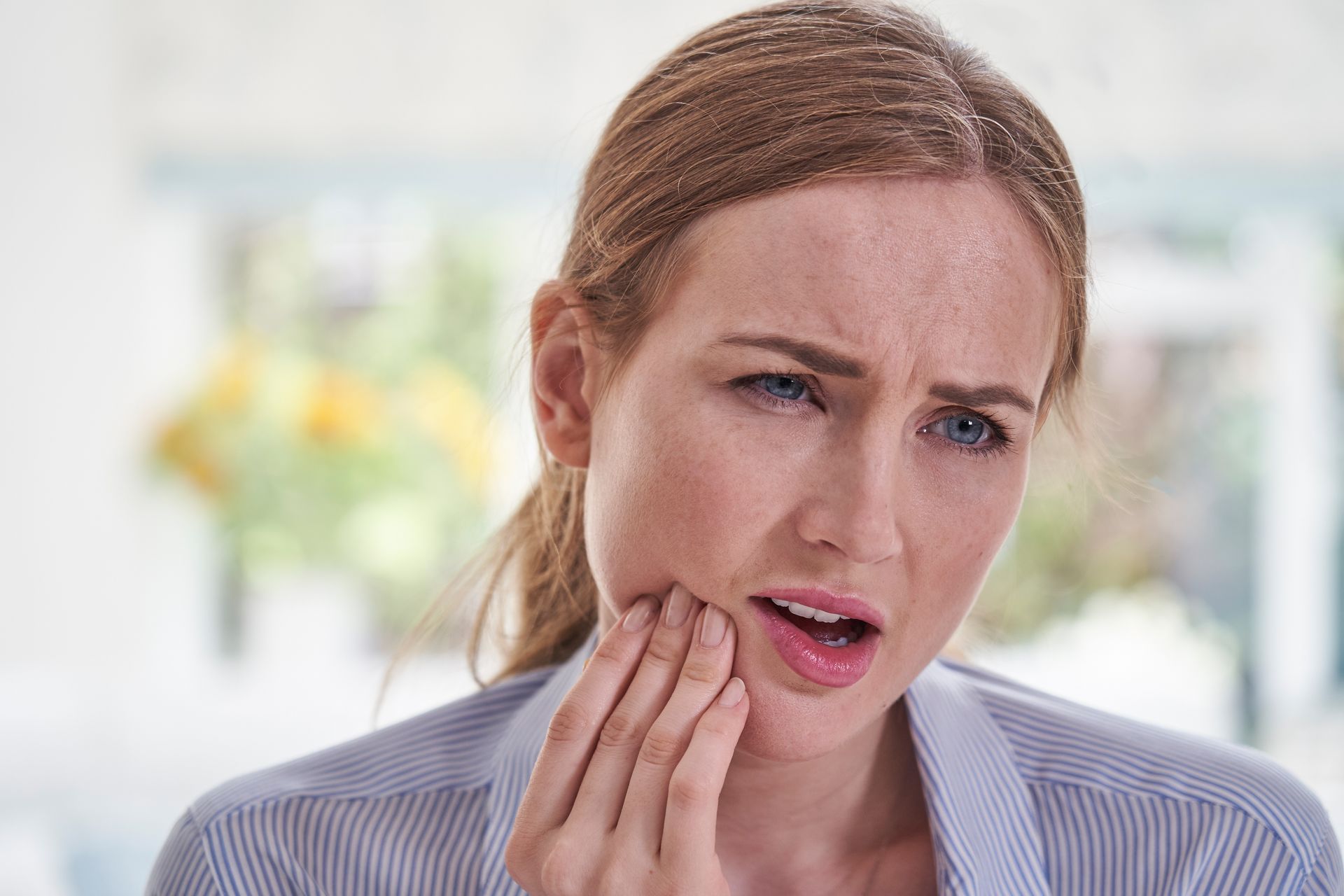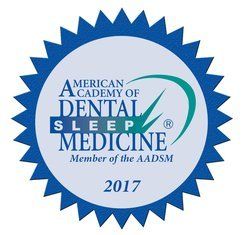What Does TMJ Pain Feel Like?

What does TMJ pain feel like? If you have pain in your jaw, or notice popping and clicking in your jaw, you may find yourself wondering if you might have TMJ, whether it emerges as sharp, sudden pain or a persistent ache that you have a hard time shaking throughout the day. You may start wondering about TMJ treatments and how to determine what is likely to be most effective for you.
Take a look at the common symptoms of TMJ pain and how you can know that's what you are experiencing.
What is TMJ Disorder?
TMJ disorder, more commonly known as TMD, occurs when you have pain in the temporomandibular joint, which connects your jawbone to your skull and allows your jaw to move. TMJ can stem from a variety of sources, including jaw injuries, arthritis, over use, clenching, stress, or simple genetics.
Symptoms may include pain or tenderness in the jaw, pain around the ear that is referred from the jaw, general facial pain, or pain when chewing. You may also find that, in severe cases, TMJ pain can lock your joint, which may make it difficult to open or close your mouth. Jaw locking can prove painful or prevent full motion in your mouth.
What Does TMJ Pain Feel Like?
Understanding what TMJ pain feels like can help you determine what questions you might need to ask your doctor and how it could impact your diagnosis. You may notice a variety of potential symptoms. The most obvious is tenderness, pain, or swelling in the jaw joint. However, pain can also occur in the neck and shoulders, in your head, or in your teeth.
Most often, continuing pain in the head, neck, and shoulders stems from tension carried in the jaw that translates to those other areas: when you have tension in one area of the body, you may tense other areas in response, causing increased pain. For some patients, pain in the neck and shoulders, or chronic headaches, may be more noticeable than TMJ pain. In some cases, that can cause misdiagnosis or make it difficult for you to get relief from your pain.
If you have a TMJ disorder, you may also notice:
- Pain or exhaustion in your jaw joint or facial muscles, especially at the end of the day, first thing upon waking.
- Swelling on one or both sides of your face
- Pain in or around your ears
- Ear fullness or ringing in the ears.
- A popping or clicking sound in the jaw joint.
- Headaches
TMJ can also cause discomfort or pain primarily when chewing, or you may notice that you have trouble opening or closing your mouth, including trouble opening your mouth completely.
What Causes TMJ Disorders?
Take a look at these common TMJ causes.
Arthritic Damage to the TMJ Joint's Cartilage
Osteoarthritis occurs as the cartilage around the jaw joint breaks down, causing pain and negatively impacting the functional movement of the jaw. Arthritic damage can be difficult to reverse but can be aided and treated in many patients with strategies like jaw rest, a soft diet, and conservative treatment with splint therapy.
Jaw Injuries
Jaw injuries occur more frequently than many people realize. They can result from whiplash, falls, or even direct blows to the face. Often, pain from jaw injuries lingers, often because people fail to seek treatment.
Erosion of the Discs in Your Jaw
Over time, the discs in the sliding joint of your jaw can wear down, causing them to rub against one another. That erosion can lead to ongoing pain that seems to worsen with time.
Chronic Tooth Grinding or Clenching
Grinding or clenching the teeth can put a great deal of stress on the temporomandibular joint and, over time, cause ongoing pain. Addressing the source of grinding and clenching can decrease those symptoms.
Intense Anxiety or Stress
High levels of stress can not only lead to increased tooth clenching or grinding, they may cause many people to carry tension in the face and jaw. Reducing stress and treating the pain can help ease TMJ disorder symptoms.
Posture
Posture can impact every area of the body, including your jaw. By addressing posture concerns, you can put less stress on your jaw, which may lead to improved pain management.
Orthodontic Braces
Sometimes, braces put strain and stress on the jaw, causing ongoing pain. Often, symptoms resolve when braces are removed.
Excessive Chewing Gum
Moderate gum-chewing usually will not cause TMJ pain. Ongoing, excessive gum use, however, can cause pain to increase over time.
Am I At Risk for TMJ?
Some people are at higher risk of developing a TMJ disorder.
Patients with Arthritis
Both patients who have rheumatoid arthritis and those who have osteoarthritis are at a higher risk for developing TMJ. If the jaw joint degrades, patients may start to experience the same type of pain in the jaw that they do in other joints.
Long-Term Grinding or Clenching of Teeth
If you grind or clench your teeth regularly, over a long period of time, you may notice yourself developing more pain in your jaw. Your dentist may be able to tell you if you grind your teeth in your sleep due to the wear patterns on your teeth.
Severe Jaw Injuries
Serious jaw injuries can cause pain both while healing and even after healing is resolved. If the pain does not resolve as the injury heals, it's critical to seek additional treatment.
Patients with Fibromyalgia
Fibromyalgia can cause pain throughout the body, including in the head, neck, shoulders, and jaw. Patients with fibromyalgia may have a greater risk of developing TMJ.
Deformities of the Face or Jaw
Patients with clear deformities in the face and jaw may have a greater risk of developing TMJ symptoms due to greater wear and tear on the joint over time or pressure on the joint in the wrong location.
If you suspect you have a TMJ issue
If you have symptoms of a TMJ disorder or have noticed pain in the face, jaw, neck, or around your ears, treatment, including
TMJ appliances, can help. Finding a qualified dentist to oversee treatment is key. Dr. Katherine Phillips is board-certified by the American Board of Orofacial Pain and dedicates her practice to treating these issues.
Contact us to learn more about the various treatments for TMJ and how they may impact you.
Contact Us Today For A Consultation!
Contact Us
Thank you for reaching out to us at REstore TMJ and Sleep Therapy. We look forward to helping you. We will follow up within 24 hours for contact requests received during normal office hours Monday – Thursday. If you have submitted a request later in the day on Thursday – Sunday, we will follow up on Monday. If you would like to talk to us before we can get to your request, please feel free to give us a call at 281-296-6797 Monday – Thursday 8am – 4:30pm. Have a great day!
Regards,
Dr. Katherine Phillips and Staff
Please try again later.
REstore TMJ & Sleep Therapy P.A.
1001 Medical Plaza Drive,
Suite 200 | The Woodlands, TX 77380
281-296-6797
Dr. Phillips serves TMJ & Sleep patients in: The Woodlands TX | Spring TX | Conroe TX Tomball TX | Cypress, TX | Houston, TX | Kingwood TX | Humble, TX | Katy TX
© 2023 by REstore TMJ & Sleep Therapy | Terms Of Service & Privacy Policy | XML Sitemap
-2700x842-1920w.png)






